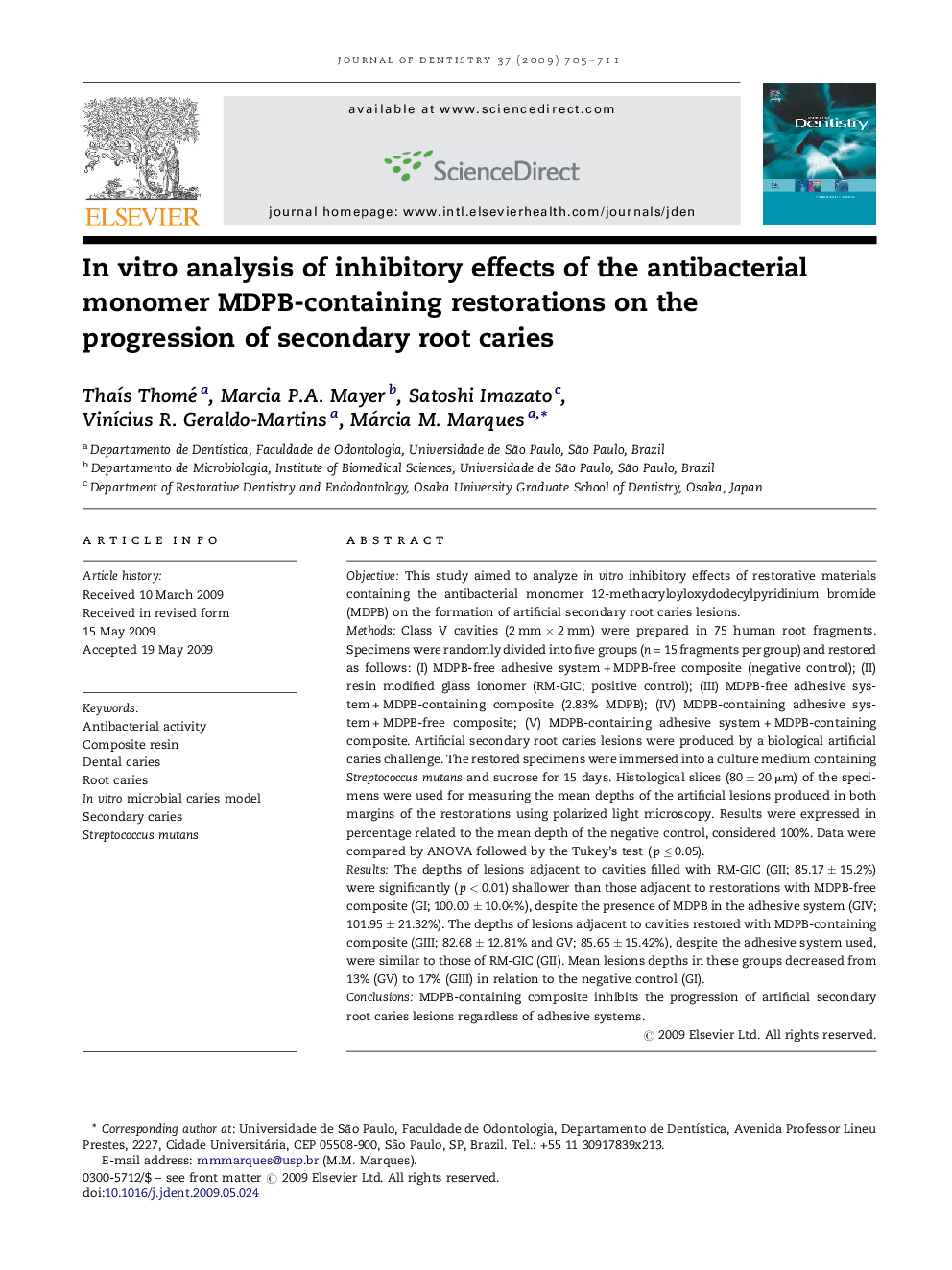| Article ID | Journal | Published Year | Pages | File Type |
|---|---|---|---|---|
| 3145694 | Journal of Dentistry | 2009 | 7 Pages |
ObjectiveThis study aimed to analyze in vitro inhibitory effects of restorative materials containing the antibacterial monomer 12-methacryloyloxydodecylpyridinium bromide (MDPB) on the formation of artificial secondary root caries lesions.MethodsClass V cavities (2 mm × 2 mm) were prepared in 75 human root fragments. Specimens were randomly divided into five groups (n = 15 fragments per group) and restored as follows: (I) MDPB-free adhesive system + MDPB-free composite (negative control); (II) resin modified glass ionomer (RM-GIC; positive control); (III) MDPB-free adhesive system + MDPB-containing composite (2.83% MDPB); (IV) MDPB-containing adhesive system + MDPB-free composite; (V) MDPB-containing adhesive system + MDPB-containing composite. Artificial secondary root caries lesions were produced by a biological artificial caries challenge. The restored specimens were immersed into a culture medium containing Streptococcus mutans and sucrose for 15 days. Histological slices (80 ± 20 μm) of the specimens were used for measuring the mean depths of the artificial lesions produced in both margins of the restorations using polarized light microscopy. Results were expressed in percentage related to the mean depth of the negative control, considered 100%. Data were compared by ANOVA followed by the Tukey's test (p ≤ 0.05).ResultsThe depths of lesions adjacent to cavities filled with RM-GIC (GII; 85.17 ± 15.2%) were significantly (p < 0.01) shallower than those adjacent to restorations with MDPB-free composite (GI; 100.00 ± 10.04%), despite the presence of MDPB in the adhesive system (GIV; 101.95 ± 21.32%). The depths of lesions adjacent to cavities restored with MDPB-containing composite (GIII; 82.68 ± 12.81% and GV; 85.65 ± 15.42%), despite the adhesive system used, were similar to those of RM-GIC (GII). Mean lesions depths in these groups decreased from 13% (GV) to 17% (GIII) in relation to the negative control (GI).ConclusionsMDPB-containing composite inhibits the progression of artificial secondary root caries lesions regardless of adhesive systems.
